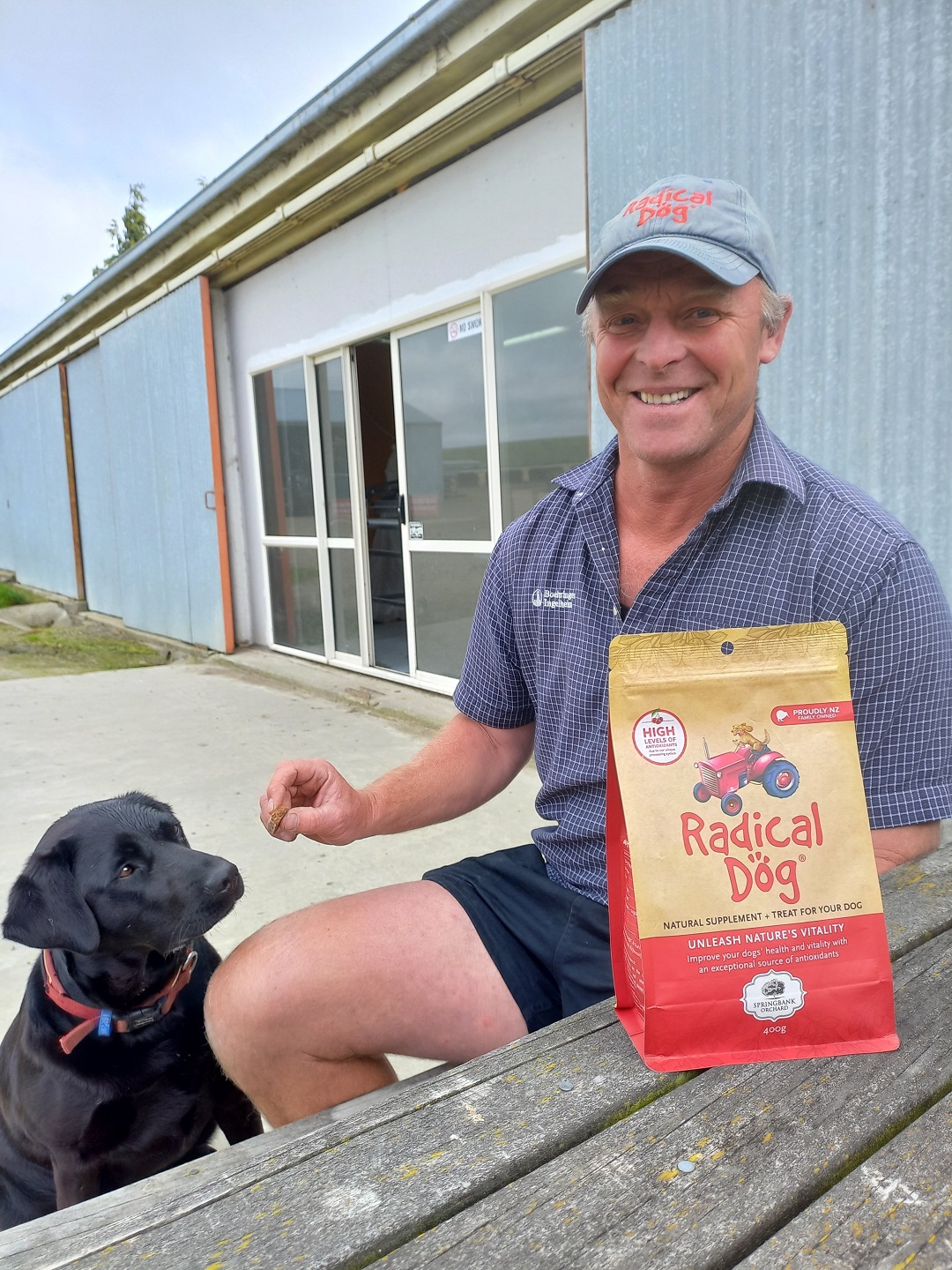
A little like the old idiom of taking coals to Newcastle, the Newlands family are now exporting their Radical Dog treats, which contain Montmorency tart cherries, to Michigan — the leading producer of tart cherries in the US.
Radical Dog has been a success story of diversification and entrepreneurism which began back in 1992 when the family decided they needed to use their irrigation water more efficiently and find a crop that would not take as much water as they had been using. After years of research and trials, they settled on tart cherries.
Cherry trees were planted on Springbank more than 20 years ago and John and Maureen Newlands travelled to the US 15 years ago to extend their research on tart cherries, exploring their benefits and their impact on health and wellbeing.
Michigan has a long history with cherries of all kinds. The state produces about 70% of the nation’s tart cherries — Montmorency being the dominant variety — and even hosts the annual national cherry festival.
While in the state, Mr and Mrs Newlands met orchardists who helped them with advice and who — after watching what the family had been doing for the past few years — were now taking Radical Dog to sell alongside their own cherry and cherry-related products.
"It has gone full circle; it is such an honour that they are now importing our Radical Dog biscuits because they understand the benefits of this superfruit," Mr Newlands said.
Tart cherries were much better known in the US than in New Zealand and appreciated for their health benefits, which included being packed with antioxidants. They had also been linked to improved sleep quality, reduced inflammation, enhanced immune function, and muscle recovery.
While harvesting the cherries, Mr Newlands noticed how the family’s dogs scoffed the fallen fruit and the penny finally dropped how good the dogs looked after the harvest.
So an animal nutritionist was employed and they started making batches of biscuits in the oven of the homestead kitchen, blowing up two old Kenwood mixers in the process as they continually tweaked the recipe.
Extensive testing was done by Massey University’s Institute of Food Nutrition and Human Health, and the biscuits were formulated to meet AAFCO (the American Association of Feed Controls) adult dog maintenance requirements. There were no by-products used in the treats, which are made of all-natural ingredients.
The enterprise had moved out of the kitchen and into a small factory in the yard of the farm where two staff were employed four days a week, running alongside a farming operation which includes dairy grazing, wintering lambs, cropping and service bulls on the 490ha property.
Mr and Mrs Newlands are in partnership with their son, Snow — who is fourth-generation on the land — and his wife, Nicola, and Radical Dog is a true family business involving Snow’s three sisters: Natalie, better known as a fashion designer with the New Lands label, is in charge of social media; Kathryn looks after dispatch; and Janey is involved in sales. Everybody pitches in at harvest time, usually in mid-January.
For Snow, the diversification had been "a different side of farming". Used to often seeing produce leave the farm and never seeing it again, it was a thrill to see Radical Dog on the shelves and to also see dogs thriving on it. He also enjoyed the feedback from dog owners.
The business had always grown incrementally, taking small steps, but the move into the US was a great step and there was potential for increased production. Moving to larger premises at some stage was a possibility.
Radical Dog was stocked at selected supermarkets, pet stores and vet clinics in New Zealand and the treats had also been available in Singapore for a few years.
And on baking days on the farm, the Newlands family’s own dogs were lined up at the door waiting for treats to be thrown their way. That included Cookie the black labrador, who broke her pelvis nearly a year ago when she fell off the back of a truck, but had recovered and was their own "radical dog".













